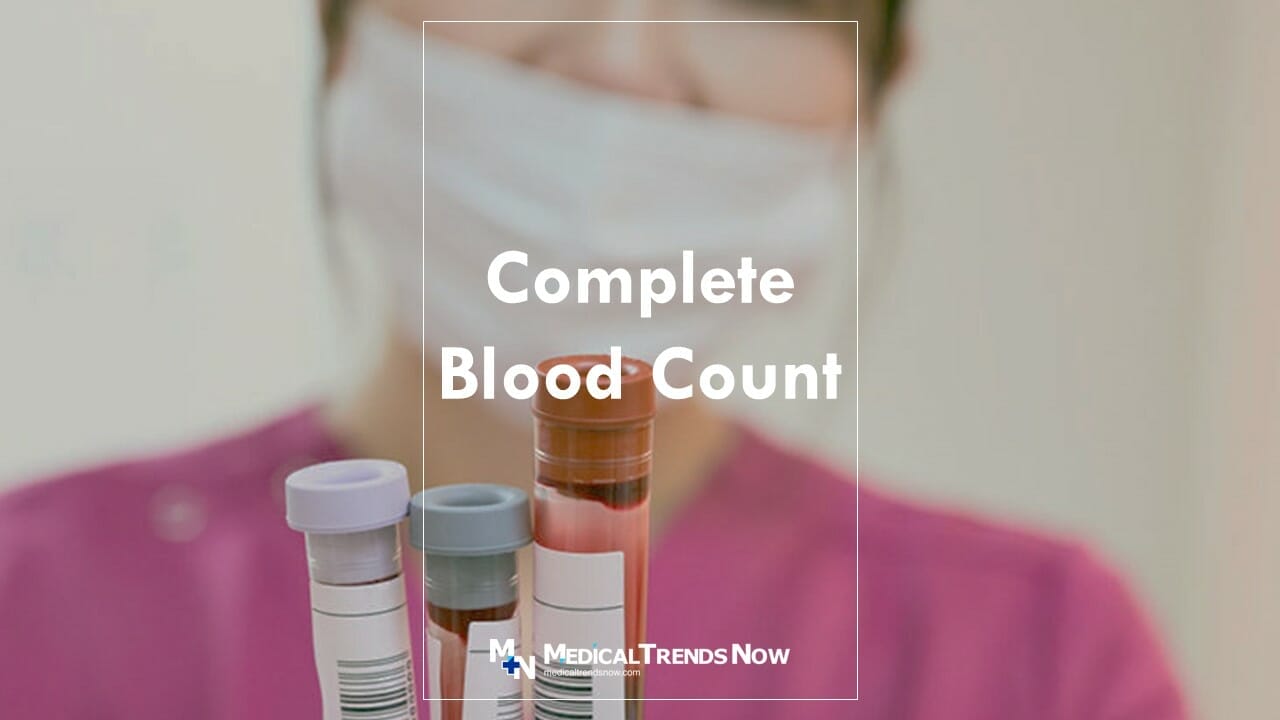Table of Contents
Blood cell numbers are one way to assess the overall health of immune system in the Philippines. It is necessary to know how well these blood cells are working with the aid of actual count yielded with the use of a test called CBC or Complete Blood Count. How is it relevant? How much is the CBC lab test? This article answers it all!
What Is A Complete Blood Count?
A complete blood count (CBC) is a simple test that can be used to determine the number of red blood cells, white blood cells, and platelets blood of Filipino patients. This test can also help Filipino doctors to determine if there are any abnormalities in your immune system or even correlations with some health issues.
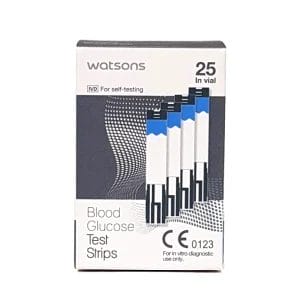
Who Can Administer The CBC Test in the Philippines?
Most often, physicians in the Philippines who are in regular appointments with patients will be the ones to order a CBC test after their consultations.
These laboratory request will be confirmed by the Medical Technologists or Laboratory Technicians in the Philippines who are licensed and trained in drawing samples and testing these prior to releasing results.
These results will now be interpreted and validated by the requesting Filipino doctor to rule out and diagnose a certain condition and advise appropriate medication/s for the patient.
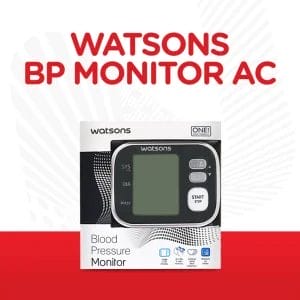
Why Do Filipino Doctors Require CBC?
There are a few reasons that a CBC test may be ordered by your Filipino doctor.
The most common reason for ordering a CBC is to determine if there are any abnormalities with the number of red blood cells, white blood cells, or platelets in your blood.
Abnormalities with these numbers can indicate a variety of health conditions, including leukemia and anemia. In addition, abnormal results from the CBC test may also suggest the presence of infection such as pneumonia.
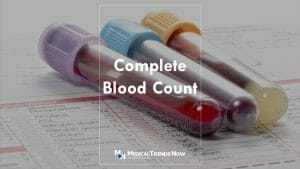
How Does A Complete Blood Count Work?
A complete blood count, which is primarily done by a Filipino Registered Medical Technologist, is conducted by drawing blood from a vein in your arm and then counting the cells in the blood. The three main types of cells that are assessed with a CBC are red blood cells, white blood cells, and platelets. These main types that are also determined in a CBC are the Hemoglobin, Hematocrit, Differential Count, and also Red Blood Cell Indices. How do these parameters contribute to the diagnosis of a certain ailment in the Philippines?
Hemoglobin
Hemoglobin is the main component of red blood cells and is responsible for carrying oxygen to all parts of the body. A low Hemoglobin level may be indicative of anemia, a condition where there are too few red blood cells in your blood. A high Hemoglobin level may be indicative of an overactive immune system or too much exercise.

Hematocrit
Hematocrit is another important measurement that is taken in a CBC. Hematocrit is the percentage of red blood cells in your blood. A high Hematocrit level may be indicative of anemia or hematological cancer. A low Hematocrit level may be indicative of a medical condition such as cirrhosis, leukemia, or lymphoma.
Differential Count
Differential Count is a measure of the number of all types of white blood cells in your sample. A high Differential Count may be indicative of an infection, while a low Differential Count may be indicative of a low immune system response. This may also give a clue to physicians whether a certain infection is primarily a bacterial, viral, or allergic infection.
Red Blood Cell Indices
Red Blood Cell Indices are another important measure that is taken in a CBC. Red Blood Cell Indices help to determine the overall health of your red blood cells. An increased Red Blood Cell Index may be indicative of anemia, while a decreased Red Blood Cell Index may be indicative of a medical condition such as iron deficiency or sickle cell anemia.
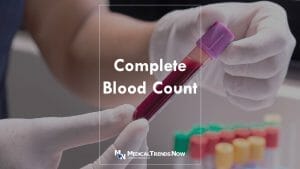
How Do I Prepare for a Complete Blood Count Test?
There is no need to fast for a CBC test. However, some minor preparations are advisable such as:
- Keeping yourself hydrated
- Having slept for at least 8 hours
- Had enough rest prior to blood collection
How is the Specimen Collected For A CBC?
Whole blood is used in testing for the Complete Blood Count. Most often, blood is drawn via Venipuncture, or inserting the needle into the vein of the forearm, and in some cases, dorsal hand or foot, and aspirate an ample amount of sample.
However, in some instances, blood can be drawn by using finger puncture, usually in small quantities often used with children and hard-to-extract patients.
Another method includes the heel puncture for babies.

Why Do I Need To Have My Complete Blood Count Checked?
There are many reasons why you may need to have your complete blood count checked. Some of the most common reasons include the following:
- To detect anemia
- To detect a medical condition such as leukemia, lymphoma, or cirrhosis
- To determine the overall health of your red blood cells
- To check for infection
- To monitor your response to treatment
- To determine the effectiveness of a blood transfusion
- To determine the appropriateness of blood donations
- To screen pregnant women for Hemolytic anemia
- To screen children for leukemia or other cancers
- To screen for hereditary conditions such as sickle cell anemia or Tay-Sachs disease.
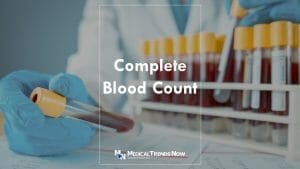
When Should I Take My Complete Blood Count Test?
Ideally, you should have your complete blood count checked every year. However, if you have any symptoms that might be indicative of a medical condition, or if you are pregnant, you should have your complete blood count checked as soon as possible or at the earliest indication of an unusual health problem. Most often, doctors will request a CBC test on patients who have no symptoms or only mild symptoms that do not warrant antibiotics or other specific treatments.
Some of the most common indications of a problem involving the blood cells include the following:
- A fever greater than 101 degrees Fahrenheit
- Signs and symptoms indicative of anemia, such as fatigue, shortness of breath, or pale skin color
- Symptoms indicative of a medical condition such as leukemia, lymphoma, or cirrhosis
- Signs and symptoms indicative of infection, such as fever, chills, or sore throat
- Symptoms indicative of anemia caused by iron deficiency or sickle cell anemia
- Symptoms suggestive of insufficient volume or quality of blood plasma due to bleeding episodes
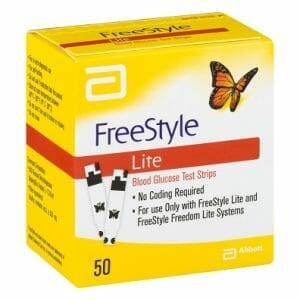
What Are The Risks Of Not Having My Complete Blood Count Checked?
In some cases, not having your complete blood count checked may lead to serious health problems. Some of the risks include the following:
A decreased ability to fight infection, which can lead to serious health problems such as sepsis (a life-threatening condition caused by infection) or pneumonia
A decreased ability to fight cancer, which may lead to cancer developing in other parts of the body
A decrease in blood cell production, which can lead to anemia or other health problems
A increase in blood cell destruction, which can lead to bleeding episodes and death.
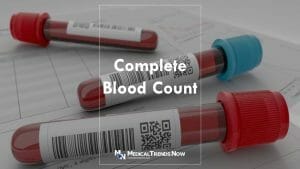
Can I Skip My Complete Blood Count Test If I’m feeling healthy?
Ideally, one should not skip a complete blood count test even if he/she is “feeling healthy.” Complete blood counts are important for identifying any health problems that may be affecting your blood. This is because some health conditions are asymptomatic, or do not manifest direct signs. These kinds of conditions will only be confirmed and detected by undergoing laboratory tests; and one of the most important is the Complete Blood Count.
What Are The Benefits Of Having My Complete Blood count Checked?
The benefits of having your complete blood count checked include the following:
- Knowing the health of your blood cells, which can help you to prevent or treat conditions that are caused by anemia or low blood cell production
- Knowing the health of your immune system, which can help you to prevent or treat infections
- Knowing if you have leukemia or lymphoma, so that you can get treatment if needed.
- Knowing if you have any health problems that may be caused by an abnormal blood count, such as a decreased ability to fight infection or cancer.
- Knowing your risk for developing a serious health condition.

How Much is Complete Blood Count Test In The Philippines?
Below are the prices of complete blood count and other laboratory tests in the Philippines. The cost of complete blood count from government, hospitals, and private laboratory clinics may change without prior notice.
CBC Price From A Government Clinic In The Philippines
So, how much is a complete blood count from a government clinic in the Philippines?
See below cost of CBC and other laboratory prices from the Department of Health government hospital in Mindanao, Philippines.
| COMPLETE BLOOD COUNT TEST FROM GOVERNMENT | PRICE |
| CBC | 175.00 |
| Hemoglobin | 40.00 |
| Hematocrit | 40.00 |
| Blood Typing (ABO Grouping) | 60.00 |
| Rh Typing | 40.00 |
| Platelet Count | 150.00 |
| Clotting Time | 40.00 |
| Bleeding Time | 20.00 |

Complete Blood Count Price List From A Private Hospital
So, how much is a complete blood count from a private hospital in the Philippines?
See below price list of CBC and other laboratory costs from a private hospital. Prices are based from Perpetual Hospital Succor in Sampaloc, Manila, Philippines.
| LABORATORY TEST FROM PRIVATE HOSPITAL | COST |
| Complete Blood Count CBC Price | 190.40 |
| Hemoglobin Price | 80.00 |
| Hematocrit Price | 80.00 |
| Blood Typing & RH Typing Price | 330.00 |
| Platelet Count Price | 110.40 |
| Clotting Time | 84.80 |
| Bleeding Time | 84.80 |
| Blood Handling Fee | 550.00 |
| 1 Unit Whole Blood | 1,800.00 |
| 1 Unit Packed RBC | 1,500.00 |
| 1 Unit Fresh Frozen Plasma | 1,000.00 |
| 1 Unit Platelet Concentrate | 1,000.00 |
| Blood C/S | 1,200.00 |
| Blood C/s with ARD | 2,535.00 |

Complete Blood Count Price From A Private Laboratory
So, how much is a complete blood count in the Philippines from a private laboratory?
See below CBC cost and other laboratory package prices from a private hospital. Prices are based from American Bio-Clinical Laboratories based in Ayala Alabang, Muntinlupa, Philippines.
| LABORATORY PACKAGE PRICE | COST |
| Executive Package | 2,090.00 |
| Fasting Blood Sugar | |
| Lipid Profile (Cholesterol, HDL, LDL, VLDL, Triglycerides) | |
| BUN | |
| Creatinine | |
| Bilirubin (Total/Direct / Indirect) | |
| TPAG (Total Protein, Albumin, Globulin, A/G ratio) | |
| SGOT | |
| SGPT | |
| BUA | |
| CBC | |
| Urinalysis | |
| Basic Health Package | 1,390.00 |
| Cholesterol | |
| HDL | |
| LDL | |
| VLDL | |
| Triglycerides | |
| Creatinine | |
| BUN | |
| FBS | |
| BUA | |
| Complete Blood Count | |
| Urinalysis | |
| Male General Health Package | 5,817.00 |
| FBS | |
| BUN | |
| Creatinine | |
| Lipid Profile | |
| Bilirubin | |
| Total Protein | |
| Albumin | |
| Globulin | |
| A/G ratio) | |
| Alkaline phosphatase | |
| LDH | |
| Calcium | |
| Sodium | |
| Potassium | |
| Chlorid | |
| CPK | |
| GGTP | |
| Amylase | |
| SGOT | |
| SGPT | |
| BUA | |
| HbA1c | |
| Complete Blood Count | |
| Urinalysis | |
| PSA | |
| Female General Health Package | 11,684.00 |
| FBS | |
| BUN | |
| Creatinine | |
| Lipid Profile | |
| Bilirubin | |
| Total Protein | |
| Albumin | |
| Globulin | |
| A/G ratio) | |
| Alkaline phosphatase | |
| LDH | |
| Calcium | |
| Sodium | |
| Potassium | |
| Chlorid | |
| CPK | |
| GGTP | |
| Amylase | |
| SGOT | |
| SGPT | |
| BUA | |
| HbA1c | |
| Complete Blood Count | |
| Urinalysis | |
| FT3, FT4, T3, T4, TSH | |
| CA 15-3 | |
| CA 125 | |
| Male Diabetic Package | 5,817.00 |
| FBS | |
| BUN | |
| Creatinine | |
| Lipid Profile | |
| Bilirubin | |
| Total Protein | |
| Albumin | |
| Globulin | |
| A/G ratio) | |
| Alkaline phosphatase | |
| LDH | |
| Calcium | |
| Sodium | |
| Potassium | |
| Chlorid | |
| CPK | |
| GGTP | |
| Amylase | |
| SGOT | |
| SGPT | |
| BUA | |
| HbA1c | |
| Complete Blood Count | |
| Urinalysis | |
| PSA | |
| Female Diabetic Package | 11,684.00 |
| FBS | |
| BUN | |
| Creatinine | |
| Lipid Profile | |
| Bilirubin | |
| Total Protein | |
| Albumin | |
| Globulin | |
| A/G ratio) | |
| Alkaline phosphatase | |
| LDH | |
| Calcium | |
| Sodium | |
| Potassium | |
| Chlorid | |
| CPK | |
| GGTP | |
| Amylase | |
| SGOT | |
| SGPT | |
| BUA | |
| HbA1c | |
| Complete Blood Count | |
| Urinalysis | |
| FT3, FT4, T3, T4, TSH | |
| CA 15-3 | |
| CA 125 |
Conclusion
A complete blood count is a routine test applicable for all ages. It can greatly help determine if you have any medical conditions or diseases that could be causing your symptoms.

Sources
- Basilan General Hospital, Department of Health Philippines
- Laboratory Test Packages – ABC Lab
- Diagnostic Services – Laboratory – Perpetual Succor Hospital
- Complete blood count (CBC) – Mayo Clinic
- Complete Blood Count: Normal Ranges & Test Details – Cleveland Clinic
- CBC blood test Information | Mount Sinai – New York
- Blood Groups and Red Cell Antigens – National Library of Medicine
- Complete Blood Count – Health Encyclopedia – University of Rochester Medical Center Rochester
- lab-tests-code.pdf – CDC
- CBC blood test – UCSF Health
Disclaimer
This website is intended to educate both members of the general public and those working in the medical field on the prevalence, causes, and methods for preventing, diagnosing and treating diseases that affect people throughout their lives. This website’s content is provided solely for informational reasons and is not meant to serve as a substitute for the advice of a qualified medical practitioner.

